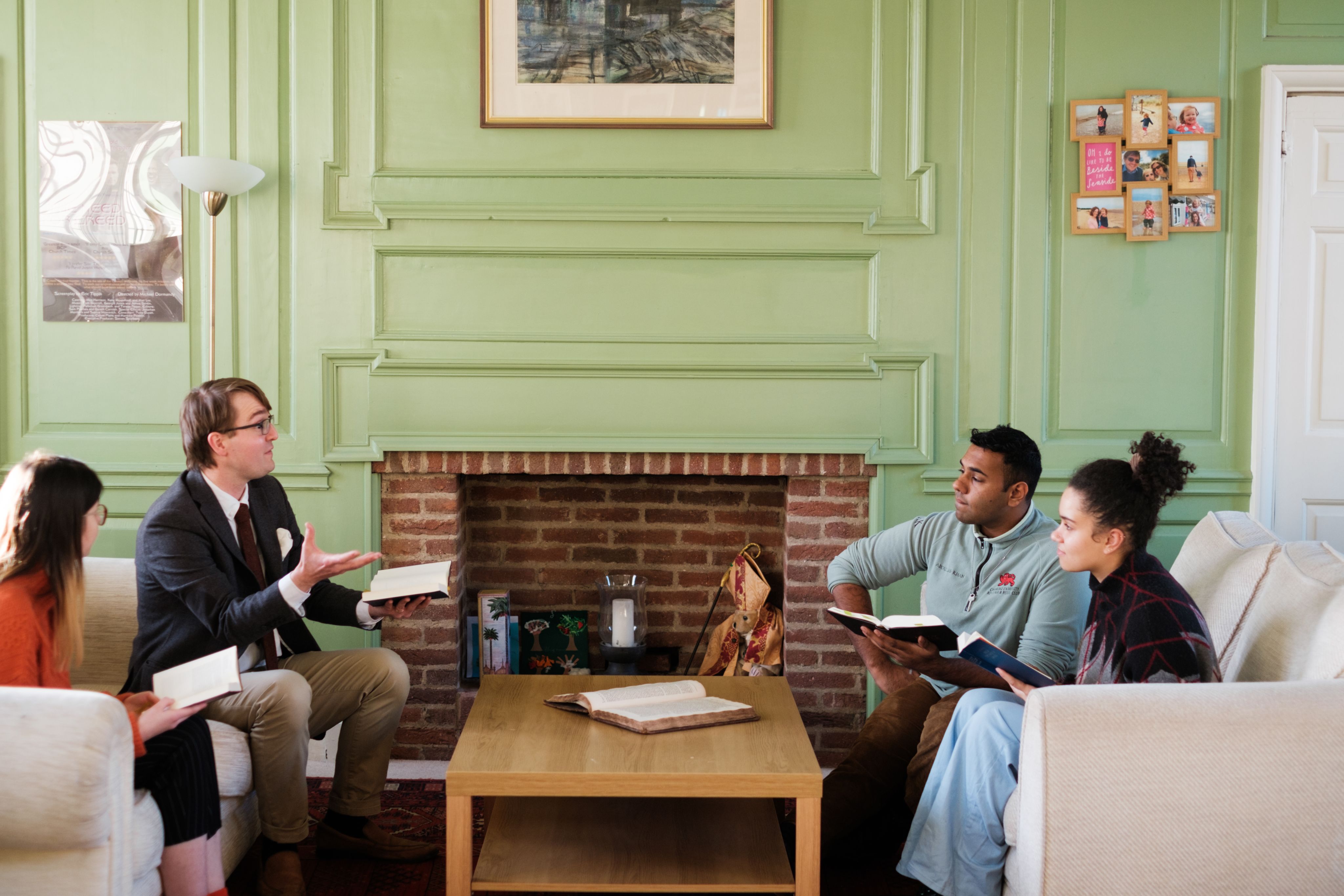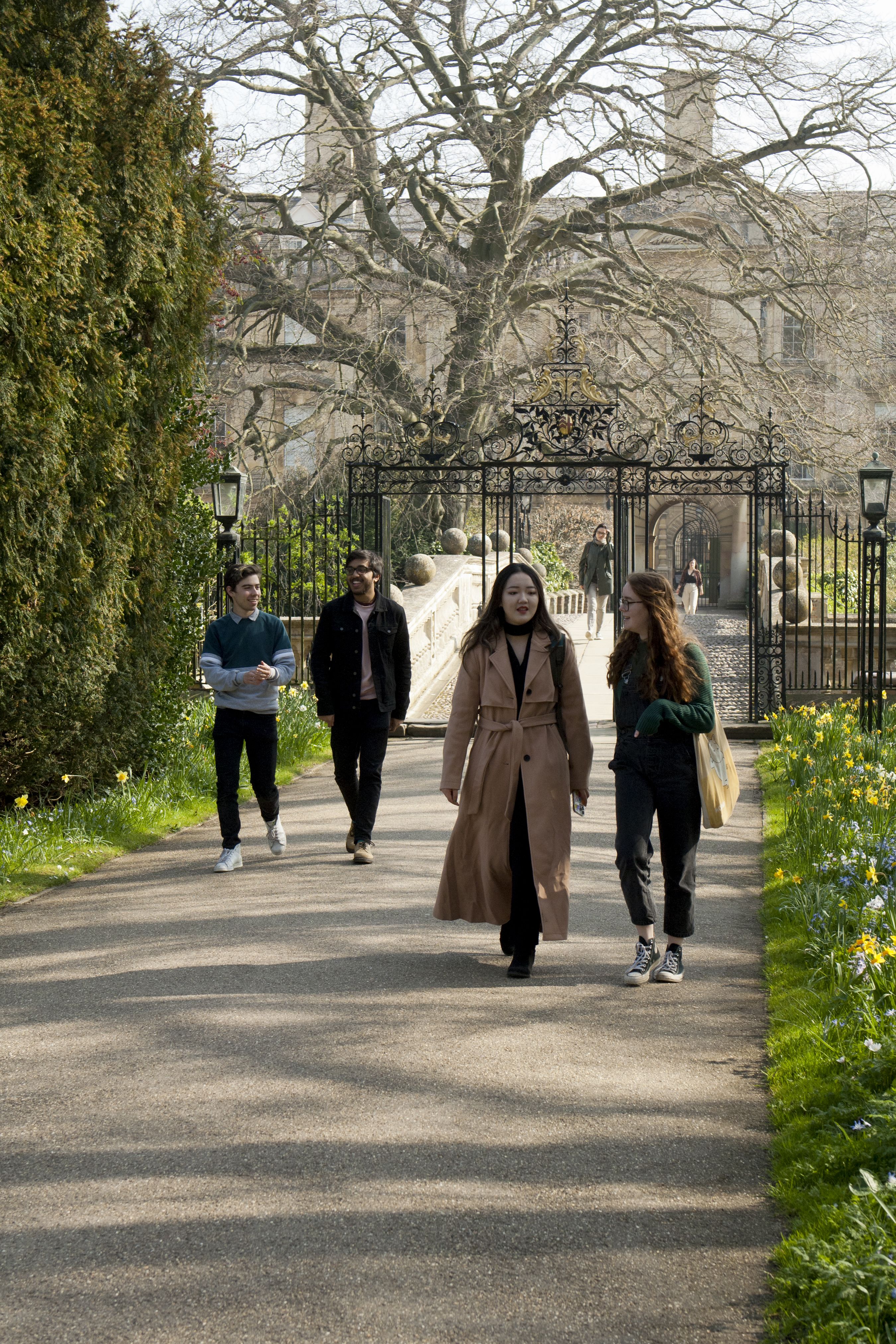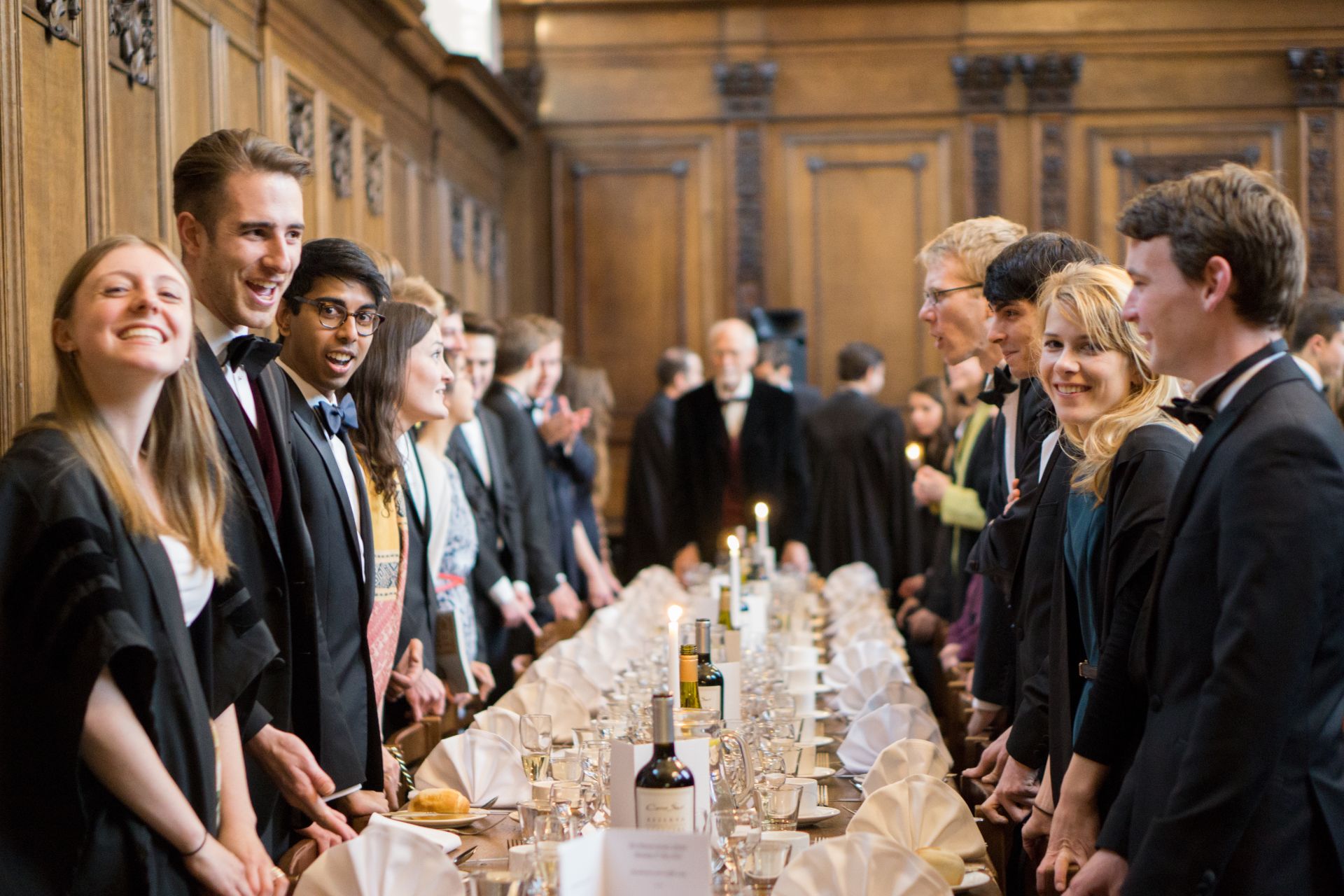A vision for Clare's eighth century

As the College looks forward to its 700th anniversary in 2026, it has set itself the task of refreshing its vision for its eighth century. Over the past 18 months, this has involved extensive consultation with all members of the Clare community – alumni, students, staff and Fellows – through a questionnaire (to which more than 2500 members responded), supplemented by focus groups. The process has also benefited from input and challenge from external experts in a wide range of sectors, from primary and secondary education to technology and geopolitics. Their contributions have helped the College identify the main challenges and opportunities – local, national and global – it is likely to face in the coming decades, and to develop its strategic vision in this broader context.
The result, approved by the Governing Body earlier this year, is an inspiring, high-level document setting out the College’s key purposes and aspirations for the first decade of its eighth century. It provides a framework for action over the coming years: action to sustain existing activities, enhance current provision, and embark on new initiatives.
The document takes as its starting point the vision for Clare articulated by the foundress, Lady Clare, in her statutes of 1359. These remain as relevant today as they were 700 years ago:
‘Experience, the universal guide, plainly shows that learning is no mean advantage in every rank of life, ecclesiastical or civil. Though many people seek it in many ways, it is best acquired in a recognised university community; and when its pupils have acquired it and tasted its sweets, it sends them out well qualified to rise according to their merits to different ranks in Church and State…
Our purpose is that through their study and teaching at the university they should discover and acquire the precious pearl of learning, so
that it does not stay hidden under a bushel but is displayed abroad to enlighten those who walk in the dark paths of ignorance.’
Lady Clare


These founding principles and our response to the challenges and opportunities of the 21st century translate into three core purposes:
1.
‘Drawing poor scholars of ability to Cambridge and providing for their education’:
Ensuring that the opportunity to study at Clare is open to all those with the ability and potential to thrive at Cambridge, irrespective of
background.
2.
‘Through their study and teaching at the University they should discover and acquire the precious pearl of learning’:
Providing a supportive environment for world-leading research, for the benefit of society and of the students whose education it informs and inspires.
3.
‘Sending them out well qualified to rise according to their merits to different ranks in Church and State’:
Equipping our students with the skills, aptitudes and knowledge to
contribute to society.
These three core purposes are underpinned and enabled by our character as a community.

Sustaining our founding purposes in an era of unprecedented change is itself a bold and ambitious statement of intent. To continue fulfilling our mission in the 21st century context, the strategic vision sets out a suite of 21 aspirations spanning every stage of College life from admissions to graduation and beyond, and every part of the Clare family of students, staff, Fellows and alumni. Collectively, the College commits itself to remaining an open, welcoming and supportive community underpinned by shared values, dedicated to academic distinction and world-class research, providing excellent teaching and preparing our students for life beyond Clare, and putting all its activities on a sustainable footing
(environmental, financial and organisational) for future generations.
Clare’s vision – of a College of Fellows and scholars living and working together in the same community, intent upon discovering and acquiring the precious pearl of learning to be a light in the dark – was radical for its day. In this spirit, the document concludes with a rallying cry:
‘Clare has a reputation for being a progressive College, willing to pioneer change. In the 1960s, we founded Clare Hall to provide for a growing number of postgraduate students and to encourage visiting scholars. In the 1970s, we were one of the first three colleges to become co-educational and co-residential. In the 2000s, we led the way in access, outreach and widening participation. With ambition and humility, and recognising that the success of the College and the success of the wider University are interdependent, we are committed to sustaining this progressive, pioneering spirit into our eighth century.’
The next stage of the process, to be undertaken during the summer and autumn of 2024, will be to draw up an implementation plan which will set out the specific actions that the College will take, together with the measures by which we will judge our success. We look forward to engaging alumni, students, staff and Fellows in this exercise.
The strategic vision and accompanying implementation plan will be published to the whole Clare community early in 2025, in the run-up to our 700th anniversary.

